Coffee always seems to be in the news. One day, the benefits of coffee drinking are being praised. A few days later, coffee and caffeine are highlighted as being detrimental for your health.
Many people now seem to view coffee as a guilty pleasure, but what’s the real story behind this popular beverage?
According to research, there’s some truth to both sides of the argument. Coffee has some serious health benefits but also some downsides that make it not right for everyone.
However, studies are showing that the benefits may be even greater than previously thought, and the risks are mostly associated with the amount or quality of coffee that you drink.
Here’s a look at some popular (but untrue) myths about coffee and what research has to say about its health-boosting potential.
5 Myths About Coffee That Aren’t True
Myth #1- Coffee Is Bad for Your Heart
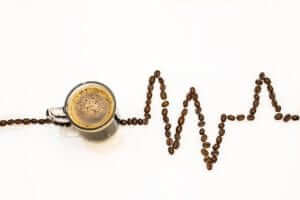
This myth is mostly based on the fact that caffeine raises blood pressure. High blood pressure is a risk factor for heart disease, so some have argued that drinking coffee can cause heart problems down the road.
Caffeine does indeed raise blood pressure but by an extremely small amount: 3–4 mm/Hg. This effect also usually goes away completely for long-time coffee drinkers.
There is a theoretical potential for caffeine to be a problem for those with already elevated blood pressure. However, studies have shown no correlation between coffee drinking and an increased risk of heart problems.
To the contrary, there is evidence that indicates a lower risk of both heart attack and stroke for coffee drinkers.
Myth #2- Coffee Has No Nutritional Value
Coffee drinking is usually perceived as being all about the caffeine with no nutritional benefits involved.
While you won’t be getting a multi-vitamin in a cup, coffee does contain several important micronutrients and some beneficial plant compounds.
One cup of coffee typically contains riboflavin/vitamin B-2 (11% RDI), pantothenic acid/vitamin B-5 (6% RDI), potassium (3% RDI), manganese (3% RDI), magnesium (2% RDI), and niacin/vitamin B-3 (2% RDI).
Perhaps more importantly, coffee is also an excellent source of antioxidants. These powerful compounds protect your body from oxidative stress and help fend off many age-related diseases.
Studies even show that in the standard Western diet, coffee is often the number one source of antioxidants.
Of course, you’ll get many more health benefits if you pair coffee with other high antioxidant foods.
Myth #3- Coffee Raises Your Cancer Risk

There’s a common misconception that coffee may contribute to cancer, although it has no basis in fact.
In reality, the opposite is true: There are benefits of coffee drinking for lowering your cancer risk.
A glance at the website of the American Institute for Cancer Research will show you that coffee is on their list of anti-cancer foods. This is largely due to the antioxidant content of coffee, which protects your body at a cellular level.
Studies also show that regular coffee drinkers tend to specifically have a lower risk of both liver and colorectal cancers. These are respectively the third and fourth leading causes of cancer death worldwide.
Myth #4- Coffee Raises Cholesterol
This particular myth has some basis in fact. Coffee doesn’t contain any cholesterol, but the beans do contain compounds called cafestol and kahweol that can potentially stimulate LDL (bad) cholesterol production.
However, if you have normal cholesterol levels, the intake of these compounds is so low that it won’t cause any noticeable changes.
For those with high cholesterol levels, simply filtering your coffee through a paper filter gets rid of most of the cafestol and kahweol. This is because they are found in the oily portion of coffee that gets trapped in filters.
But if you aren’t worried about cholesterol, it may be better not to filter your coffee because cafestol and kahweol have shown some anti-cancer effects.
Myth #5- Drinking Coffee is Unhealthy/Bad for You
This is the large umbrella myth that always seems to surround coffee. It mainly comes from a general perception that caffeine is bad for health and an over exaggeration of coffee’s downsides.
If you aren’t convinced yet of the significant benefits of coffee drinking, keep reading for more research-based findings.
6 More Benefits of Coffee Drinking
May Help You Live Longer

One rather surprising benefit of coffee is that it’s associated with a reduced risk of dying from any cause.
A few large studies involving over 100,000 people concluded that regularly drinking coffee was associated with a “modest” reduced risk of all-cause mortality. This “modest” reduction was as high as 20% for men and 26% for women.
Most likely, this is at least partly due to the antioxidant content of coffee. Combining it with other antioxidant and anti-aging foods will boost your health even more as you get older.
May Help Prevent Diabetes
Type 2 diabetes is one chronic disease that coffee seems to be particularly effective against. Multiple studies have documented that coffee drinkers consistently have a lower risk of developing diabetes.
Drinking 3-6 cups (or more) of coffee a day seems to have the greatest effect. Research estimates range from a 23-50% lower risk of developing type 2 diabetes with this amount of coffee consumption.
That doesn’t mean moderate coffee drinkers are out of luck. One research review put the benefits of coffee drinking at a 7% lower chance of developing diabetes per daily cup.
Protective of Brain Health
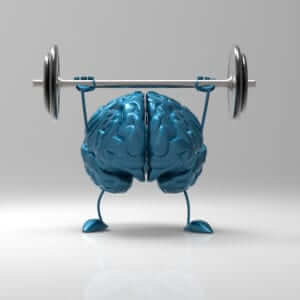
One fascinating health benefit of coffee is its potential ability to help protect cognitive function. Research is revealing a connection between coffee drinking and a lower risk of developing neurogenerative diseases.
More specifically, the caffeine in coffee appears to boost brain health.
One study examined the impact of caffeine consumption on the risk of developing Alzheimer’s.
The results found that “caffeine intake was associated with a significantly lower risk for AD (Alzheimer’s disease)”.
Another research review concluded that caffeine also has potential protective properties against dementia.
Yet more research has documented an association between coffee and caffeine intake and a lower risk of Parkinson’s, another devastating neurogenerative disease.
So far, studies indicate that decaf coffee does not have the same protective effects for your brain, so don’t be afraid to reach for the caffeinated kind.
Supports Liver Health
Another of the benefits of coffee drinking is for liver health. Your liver is a very important organ, especially for the natural detoxification process that happens continually within your body.
Not only can coffee potentially lower your risk of liver cancer (as mentioned), it may also protect overall liver function and health.
Studies indicate that coffee consumption can reduce your risk of several types of liver problems. This includes cirrhosis, non-alcoholic fatty liver disease, and liver fibrosis.
Research also shows that coffee drinkers are more likely to have healthy levels of liver enzymes.
So far, it seems that these liver-protective properties come from the coffee itself- not the caffeine content. This means both caffeinated and decaf blends should have similar benefits.
Boosts Energy and Focus

One of the most well-known benefits of caffeine is that it can boost your energy and concentration. Drinking a cup of caffeinated coffee can make you feel less tired, more alert, and better able to accomplish daily tasks.
Caffeine has also been shown to give a short-term boost to cognitive function and mood. It helps you perform better on mental tasks and makes you feel better until the effects wear off.
An added bonus is that caffeine boosts how you feel physically as well. It stimulates your nervous system and increases adrenaline, which can improve both physical performance and endurance.
Boosts Metabolism and Fat-Burning (& Potential Weight Loss Aid)
Coffee drinking is known to have benefits for metabolism due to its caffeine content.
Studies show that regular doses of 100 mg of caffeine (equal to 1-2 cups of coffee) can boost metabolic rate by 8-11%. Caffeine can also specifically increase fat-burning by anywhere from 10-29%.
The main problem with using coffee for weight loss is that many people drink it loaded with sugar, cream, and other additives. However, if you combine it with a healthy diet and exercise, coffee can provide a welcome boost for your metabolism.
Potential Downsides of Coffee Drinking

Even with all the health benefits of coffee, there are some potential downsides. Most of them are avoidable if you are aware of them, but a few can be problematic for certain people.
Can Cause Anxiety, Jitters, and Nervous System Strain
Coffee (mainly the caffeinated kind) has been known to increase the risk for anxiety, especially in those who already deal with a panic or social anxiety disorder. Lowering your intake or switching to decaf can help if you find this to be a problem.
Caffeine can also cause something commonly called “jitters” in which you feel shaky and have a racing heart. This is almost always associated with excessive caffeine consumption, although some people who are very sensitive to caffeine will experience it even at lower amounts.
Another “drawback” is that if you are using coffee/caffeine as a substitute for rest, you’ll eventually end up with nervous system “burnout”.
Caffeine works by stimulating your nervous system. If your nervous system isn’t allowed to recover by getting rest and a good supply of nutrients, you may end up feeling like you’re constantly in “crash” mode.
Once again, this is largely due to overconsumption and unhealthy use of caffeine- not a risk of coffee in general.
Can Contribute to Insomnia

Coffee drinking may have benefits for energy, but drink it too late in the day, and you’ll have trouble sleeping.
For most people, the cutoff time is somewhere around 3-4 pm. Anytime after that and the caffeine may not be fully processed by the time you go to bed. Even if you can fall asleep, your sleep quality will likely suffer.
Of course, this problem is easily fixed by switching to decaf or cutting off coffee entirely in early to mid afternoon.
Caffeine Is Mildly Addictive
Caffeine isn’t addictive in the same way that addictive drugs are, but it does cause “mild physical dependence.” This only happens if you drink caffeinated coffee regularly.
Because it’s not a true addiction, withdrawal symptoms are not severe or harmful. Nevertheless, you will still likely experience a headache, fatigue, and irritability if you suddenly stop a coffee habit.
Can Cause Digestive Symptoms
Digestive distress is one of the most frequent “side effects” coffee drinkers suffer. Most coffee tends to be very acidic, which can be hard on your digestive system. Heartburn, stomach aches, and nausea can all come from just one cup. Caffeine may also worsen gastroesophageal reflux disease (GERD).
May Be Full of Toxins

Unfortunately, the benefits of coffee drinking are frequently offset by toxins. Like any other crop, coffee trees are often sprayed with pesticides and other chemicals. These toxins can end up in the beans and become concentrated in your freshly brewed coffee.
Mycotoxins are a type of mold toxins that frequently contaminate coffee. They grow within the beans and can trigger inflammation within your body and potentially cause kidney problems. Unfortunately, many commercial coffee blends contain high levels of mycotoxins.
Getting the Most Benefits from Coffee Drinking
As you can see, coffee packs in some major benefits- with a few caveats. Here’s a quick look at how you can make coffee work for your health:
- Enjoy in Moderation– The recommended upper limit for caffeine intake is around 500 mg a day for adults (200 mg for pregnant women). This equals out to about 5 cups of coffee (home-brewed). However, some health experts recommend sticking with 1-2 cups a day for maximum benefit and minimum negative effects.
- Keep It Healthy– Sugar-loaded and artificially flavored coffee drinks are unfortunately the norm. Keep your cup healthy by using a plant-based milk, natural sweetener, or by drinking it black.
- Drink Clean– Treat your body by drinking quality, organic coffee whenever possible. This is the best way to avoid toxins and chemicals that may harm your health. Especially look for coffee that is third-party tested for mold (including mycotoxins), heavy metals, etc. Shade-grown is another keyword to look for on the label because this growing method drastically cuts the need for pesticides.
Top Recommendation: Purity Coffee
If you are in the market for a coffee that goes above and beyond as far as flavor and quality are concerned, be sure you look into Purity Coffee.
Purity Coffee has perhaps the most rigorous standards in the industry, sourcing their beans only from regenerative organic farms and selecting only beans that make the highest specialty grade.
The 100% organic green coffee beans are then roasted in a specific way to maximize antioxidant content, resulting in coffee with up to 65% more antioxidants than other organic coffee brands. The coffee is also rigorously tested for mold, mycotoxins, heavy metals, and other contaminants AND shipped to customers within 48 hours of roasting.
As a bonus, Purity Coffee products are Rainforest Alliance and Smithsonian Bird Friendly® certified, which means they follow the gold standard for sustainable, shade-grown coffee.
If you would like to try Purity Coffee for yourself, look into their premium coffee selection here and use the code AAA at checkout to get 20% off your first purchase as a new customer.
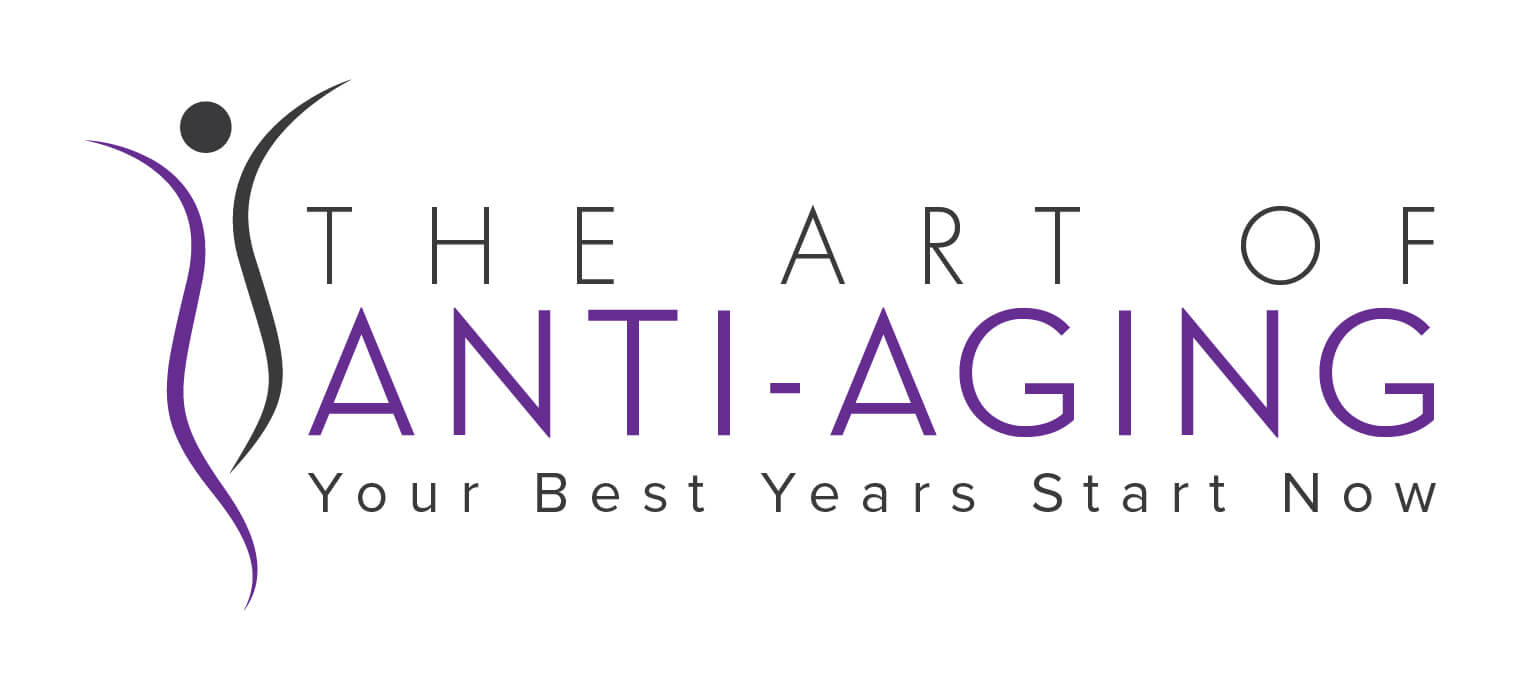
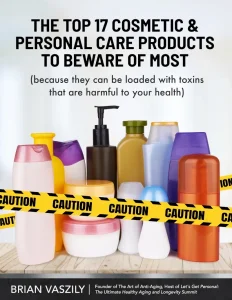

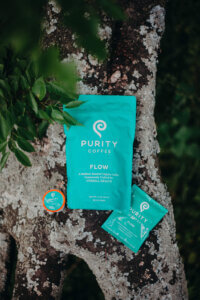
Great article, worth the read for sure. Your information appears well researched and correct. Great that I can feek OK at coffee time. And thank you for this
Enjoyed the article – what about mushroom coffee?
Would be interested in your findings.
Regards,
super information – most useful
Excellent article!
Good article ❤️
It’s a good way to start out the day. Sometimes my husband Lee even
asks for a cup; before I even had started a pot to brew. It also helps the
elimination system of the body.
I had to add that to the reply. Have a great day everyone to everyone
that drinks coffee as a habit.
I’ve been a 1-3 cup a day coffee drinker all my kids—always black without sugar or creamers. The one change I will definitely make is to go organic. While I switched to organic foods long ago, I guess I’m just brain dead when it comes to picking up Folgers from Costco. I will definitely look for Life Boost. Thank you
Great Andrea about going organic – I drink lots of coffee everyday, always organic and do the darkest roast because of the less caffeine. Love Kicking Horse.
Great SuzieQ,you remind me the time I use to lissen CCR,sorry I know is off topic,but was stronger than me!!!😀😀😀
I read that organic, whole bean medium roast is the best. I think that the higher roast contains more acrylamides. Not sure of spelling. I guess whole beans contribute to keeping the coffee fresher for a longer period.
An endocrinologist told me that my high daily intake of coffee (around 4 double shot espressos) was causing high levels of estrogen, since my liver didn’t have capacity to process all of that, alongside other wastes it needs to get rid of (excess estrogen). Apparently the liver prioritises breaking down coffee (and other toxins like alcohol) over these other things. I have cut back to one double shot espresso a day about 6 weeks ago, and already am feeling significantly better. Coffee in moderation is good, but excess clearly a problem, at least for me.
Thank you.
Great article. Noticed the difference when I switched from conventional to organic. Bolder flavor and no more jitters after drinking. Thanks so much for the article!!!
I apprecciated this balanced article and feel glad that my 2 cups of organic coffee a day are doing me good. The cut-off time of 3pm seems to work well for me.
Thank you so much.
This article is very informative. I’m glad you sent it. I was never a coffee drinker. Back in the day I drank soda. 🥵 Biggest mistake .
I am proud to say that I am a coffee drinker
now. I have not had any issues as the Myths
stated. I enjoy it and will continue to drink it.
Thanks!
I add a very small amount of baking soda to my coffee. It does not affect the taste, but raises the pH so I don’t have the heartburn I sometimes get drinking coffee. Got this tip off the internet. Thanks for that.
Hi Peter. I saw your reply about coffee drinking and I have a question for you. How much baking soda do you use and how much is too much? I’ve had to pretty much give it up because of my hiatal hernia surgery but I sure do miss it. Thanks again
I use just a small pinch.
I have been drinking coffee since I was 10 years old. It was lots of milk and some coffee with 1 teaspoon of sugar and as I got older it became lots of coffee and some half and half milk. I also enjoy espresso coffee with some sugar.
I can say that I usually have a cup of coffee and half and half milk in the morning for breakfast.
I have another cup of coffee and half and half milk around 3 pm.
After dinner I have an espresso with half teaspoon of sugar.
I enjoy coffee and was glad to learn that it is good for me. Thanks
I’ve gone to a teaspoon of honey (natural sugar) and am happy with that..
This article was very informative. Thank you. I am a decaf drinker for fbreakfast and lunch. I have never experienced any problems. Always black.
Karen
I do not drink coffee and have it up over 30 years ago. My husband enjoys his one cup s day and I enjoy smelling the aroma. As with many of the foods we enjoy there is good and bad, however, getting a variety of what we consume seems the best. I enjoyed the article with explicate pros and cons, thank you.
May I ask how old you are? I have liver issues and started drinking 4-5 cups a day and my liver enzymes and fibroscan( it checks for liver fibrocity) have vastly improved, it’s an autoimmune disease not from alcohol.
Very good article.
All health researched articles
Are so beneficial!
Good work keep it up please!
Very helpful article . I regularly drink around 16 oz of coffee per day. Nice to know the berets as well as thing to watch out for. I didn’t realize that mold could be an issue. I have recently read that fungal infections may be implicated in Alzheimer’s as well. Love the articles you choose to post, very helpful!
I have associated cardiac disarrhythmia. Getting of coffee and superdosing on magnesium and potassium has helped tremendously.
At least coffee makes up for magnesium an potassium
Good article and thanks for the organic brand recommendation. I’ve been purchasing “Organic” from Whole Foods, Trader Joes and where else I can find it. I was unfamiliar with the “shade-grown” term and will look for it on future purchases. Thanks for the research and timely information!
Brian thanks for the excellent article on coffee…good and bad..
I do love my morning coffee. But stop after 2cups…it seems to make my bladder overactive…and I don’t want to stay up any later I do already. LOL, My body seems to have an internal clock…sleep for 6-7hr max. and my eyes seem to pop open at 730a no matter what time I go to sleep…go figure
So excited to hear these benefits! I love organic black coffee. Thank you for sharing ~
Thanks for the great article! I ordered Life Boost coffee a while ago based on your recommendation and love it. Sticking with no more than 1 cup a day (and I don’t drink coffee daily), either black or with unsweetened plant-based milk. No MCT or coconut oil, no coconut milk, butter or any other high-fat keto additions.
Great article, lots of good info to consider and to be well informed. I have been drinking Lifeboost coffee for about three years and I agree with the comments already made about it. I really notice the difference when I drink other brands of coffee that’s when I don’t have a choice. I am so happy I found Lifeboost which I enjoy very much.
Keep up the good work you do on providing us with such great articles.
I Live InnArkansas , Where Can I Find Lifeboost Coffee.
I really enjoyed this coffee article, and I started drinking coffee way back in 2nd grade. At first, I drank my coffee black. Later I started putting sugar or artificial sugar with phenylalanine—a neurotransmitter that converts to dopamine. Currently I have some instant non-dairy hazelnut. Normally I buy the darkest coffee available, and I’m a fan of Cafe Bustelo.
I had a hard time giving up half and half until I tried Lifeboost Coffee. Soooo good. I use an oatbased creamed by Elmhurst and love my coffee again!
I love coffee, usually 3 times daily……with 100 Pure maple syrup., NEVER SUGAR
AND I MAKE WHAT I CALL A 2/3 CUP…..BUT A FULL SPOONFUL OF COFFEE. IT IS STRONGER BUT FEELS RIGHT FOR A VERY HEALTHY SENIOR.
Informative article. Thanks.
Enjoyed the article. The BEST coffee is organic and processed the cold water method. The only time it is heated is when you pour hot water on the ‘coffee extract’ and drink it. OHHHH so
GOOD. Hope you will try that some time. I’m in a nursing home now so I really miss it.
Is Lifeboost coffee available in the Caribbean (Jamaica)? Would really like to try it. I am not a regular coffee drinker but I do like a cup every now and then.
Very interesting article. I have learned a lot about coffee. I am not a coffee drinker, but I can
share this thoughtful and helpful information with families and friends.
This gave me much needed clarification on consumption of coffee. Really help ed me feel better about my morning drink!! Thank you very much!
I eat and drink everything organic except nuts but including coffe (although I think coffe is a nut). The reason is that nuts get mycotoxins which are dangerous for the liver (gives liver cancer). Coffee also gets mycotoxins. How does buying organic coffee takes care of the mycotoxins (which are normally removed by pesticides)?
Great information. I couldn’t be as alert or healthy without it.
Thank you for doing the research. I can now carry on drinking my black coffee in the morning. I normally have 3 to 4 cups of coffee/day.
Thank you for the excellent coffee article! I enjoy 1-2 cups a day of strong Organic French roast coffee, one in the morning black and one in the afternoon with half and half. So happy to have it confirmed that it is good for me!
Nancy, Where do you purchase your French roast coffee?
Thanks.
Linda.
So happy to have you back up the benefits of drinking coffee.
great article. Will definitely buy organic from now on .
This is good to know for the coffee addict me. As always, your articles are always informational and helpful.
Thanks for that, Brian, and you have a good day!
I love coffee and it’s good to know that there is a benefit. But I tune in for the ‘bad dad’ jokes:)
I like drinking coffee especially in the morning I used to drink almost four cups and I am happen to know that there are so many benefical for the health
Thanks for your great article I will certainly look for organic coffee to use as I often wondered about the number of coffee a day to have and the consequences
thanks for the article
I love coffee, but I can only drink decaf coffee, because caffeinated coffee makes me very sick. I don’t drink any caffeinated soft drinks, because they make me sick too.
Thanks for this great article!!
I drank coffee for over 30 years, plus tons of Mt. Dew on top of that! I quit both cold turkey and switched to enjoying my coffee utilizing coffee enemas. Great for your health and detox when done correctly!
I have hereditary high cholesterol and it was interesting to read about using a filter to absorb the oils that raise cholesterol. I usually have a double latte each morning and feel great. Hmmm, i may need to find a filter. Thanks.
I have inherited high cholesterol too. But, my HDL compensates for the LDL. I’m at no more risk than anyone else when you ratio all the numbers. Then I got lazy and started using my husband’s Kuerig, big mistake, the oils! I went back to my filtered drip.
Sincere congratulations for your FIRST CLASS ARTICLE.
All the best,
J.M.Ramirez
Thank you Brian. This has put my mind & ❤ at rest. Drank blk coffee(ugh!sugar,etc)(daily). After 3rd child, smelled so good but couldn’t drink it. A few yrs later, enjoyed w/Int. Delight-only way.Now my son got me on Oat. $’s but will try to go to organic.
My dad wanted to live to 100. He got through his final year by happily accepting any time someone offered him a cup of coffee.
I am impressed with your article about coffee and with your suggestion about Life Boost specifically. I love the medium roast which has no bitter taste, and my hubby prefers the dark roast. So we buy some of each.
Informative article & also I Have experienced that it was positive when I drink
I enjoyed reading the pros and con of this article.
I like some half and half and raw sugar in my coffee.
I like the suggestion of Maple syrup as a substitute for sugar.
Thank you
Marlene
Good information to counteract the misinformation that still exists about coffee. Thank you for sharing!
Very good article, and timely, as I was considering cutting out coffee due to the nervous agitation. I drink organic already, so I’ll look for a half-caf type now. I put unsweetened dark chocolate and coconut flakes, plus a couple drops of mint on the grounds, use maple syrup and mostly nut or oat milk.
I started drinking coffee at age 22 and quiclly learned to love black coffee but, used to over do it. I got disciplined and now have 2- 8oz cups a day. One first thing in the morning, 2nd after lunch and never after 3 pm. I do drink organic when I can find one I love in stock. I had my first colonoscopy four yrs. ago at age 63. I was told I had the cleanest, healthiest colon he ever saw and wouldn’t need another colonoscopy for 10 yrs! I attribute that to my coffee and fairly clean diet.
Thank you! I really enjoyed this well researched article.
What about coffee being a diuretic? Can it help people with frequent urination problems?
Thanks for the support for coffee. I enjoy it with turmeric and black pepper which helps control the arthritis in my fingers.
liked this article it was interesting, informative and educational.
Thank you for an excellent article.
Great article! Thanks. I have my own combo:
Organic Fairtrade coffee with ginger, cardamom, garam masala, cacao powder and unsweetened soymilk. I call it my “Childish Drink” cause it’s so delicious!
Beautiful…more people should write about Coffee, sometimes I think, like love it makes the world a better place,,,
Great article!!! Thanks!
Thank you for a great article! I love coffee and only drink 1 or maximum 2 cups of espresso (the one I like the most) per day, before lunch time, so it doesn´t affect my sleep. I never add anything to it, and about a year ago I stopped adding sugar (I used to add a tiny teaspoon of raw sugar, but no more). Coffee also helps me with my (never ending) migraine attacks. Caffeine actually increases the effect of pain killers, so it is excellent. All in all, it has more benefits than side effects. Coffee is my favourite drink and there is now way I would ever give it up!
A good, straight forward article that clearly defines both the positives and negatives (for some people)
Naturally quality and organic grown coffee is the best for your health.
I also add a small amount of baking soda to each cup I have without having any taste effect. This further increases the health benefits of coffee as a whole.
Coffee mildly addicting? No! Most people can’t go a day or two without getting headache, tiredness, irritability and other symptoms of addiction withdrawal. On the other hand there are people with a fast-metabolizing gene for caffeine who can choose to drink it one day and not another- although they never experience the lift in mood or other physical sensations other than warmth and slight fullness in the tummy.
I’ve always kept my coffee in the freezer or fridge. It doesnt get that bitter taste. Dont forget to clean your pot either. After every can use 1/4 cup of vinegar fill the rest of the way with water, for a 10-12 cup pot. Once the cleaning is done use the water to refresh your drains. (sinks, tub, toilet)